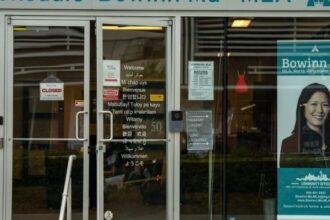The corridors of Fleming College in Peterborough buzzed with purpose this week as hundreds of educators, healthcare professionals, and community leaders gathered for the third annual Child and Youth Mental Health Symposium. In a region where mental health resources have historically struggled to meet demand, this growing initiative represents a critical alliance between local organizations determined to transform how we support young people in crisis.
“What we’re witnessing today is the power of community collaboration,” said Dr. Marian Patterson, lead organizer and child psychologist at Peterborough Regional Health Centre. “Three years ago, we started with a simple idea—bringing together everyone who touches the lives of struggling youth. Today, we have over 300 participants sharing knowledge that will immediately impact how we serve children in our community.”
The timing couldn’t be more crucial. According to data presented at the symposium, Peterborough has seen a 47% increase in youth mental health emergency visits since 2019. Local schools report that anxiety disorders, depression, and behavioral challenges are becoming increasingly prevalent among students, creating new pressures on an already strained system.
This year’s symposium focused heavily on practical intervention strategies that can be implemented with limited resources. Sessions ranged from trauma-informed care approaches to digital wellness education—reflecting the complex challenges facing today’s youth. Particularly well-attended was a workshop on recognizing early warning signs of mental health struggles in elementary school settings.
“We need to move beyond awareness and into action,” emphasized Superintendent Kelly Richards of the Kawartha Pine Ridge District School Board. “Every teacher and administrator leaves here with concrete tools they can apply immediately in their classrooms. That’s the difference between talking about the problem and actually addressing it.”
Perhaps most encouraging was the significant participation of youth advocates themselves. The symposium featured a panel of local high school students who shared their lived experiences navigating mental health challenges. Their candid testimonies about both institutional failures and successful interventions provided powerful context for the professional discussions that followed.
“Being invited to speak here validates that our voices matter in this conversation,” said 17-year-old panelist Aisha Mahmood. “Adults are finally understanding that we need to be part of designing the solutions that will work for us.”
The symposium also highlighted innovative local programs showing promising results. The Peterborough Youth Wellness Hub, which provides integrated services under one roof, reported serving over 600 youth in its first year of operation—many of whom had never previously accessed mental health support.
Funding remains a significant challenge, however. Multiple presenters noted that while demand for youth mental health services continues to climb, resources haven’t kept pace. Several community organizations are now exploring collaborative funding models to maximize impact across the region.
“What makes Peterborough’s approach special is this determination to work across traditional boundaries,” noted Dr. Elaine Choi, keynote speaker and provincial mental health policy advisor. “I’m seeing schools, hospitals, social services, and community groups functioning almost as a single system. That’s remarkably rare and incredibly effective.”
As the symposium concluded, organizers announced plans to establish quarterly follow-up sessions to maintain momentum and accountability. They also unveiled a new digital resource library that will allow participants to continue sharing best practices throughout the year.
The question now facing Peterborough’s mental health community is whether this collaborative energy can translate into measurable improvements in youth wellbeing outcomes. Will these connections forged in conference rooms ultimately mean fewer young people in crisis and more receiving timely, effective support when they need it most?
For more information on mental health initiatives across Canada, visit CO24 News or our dedicated Canada News section.

























